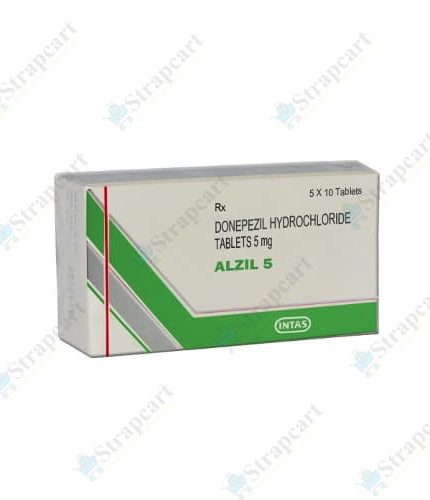Uncontrolled ejaculation that occurs before or soon after sexual penetration is known as premature ejaculation. It occurs without much sexual stimulation and before the individual desires it. Both partners might have uncomfortable sex as a result of it. This may exacerbate anxiety, which could worsen the situation. It is one of the most common forms of male sexual dysfunction. Every man has most likely experienced it at some point in his life.
Psychological causes
According to some medical professionals, early sexual experiences can set up a pattern that can be hard to break later in life, like:
Circumstances where you might have rushed to reach the peak to avoid being noticed
Feelings of guilt that make you more likely to rush into sexual encounters
Premature ejaculation can also be brought on by the following factors:
erectile dysfunction. Men who experience anxiety about getting or keeping an erection during sexual activity may develop a habit of ejaculating quickly.
Fear and anxiety. Anxiety, either specifically related to sexual performance or related to other issues, is a common problem for many men who ejaculate too soon.
Relationship issues. Interpersonal issues between you and your current partner may be the cause of the problem if you have had fulfilling sexual relationships with other partners in which premature ejaculation occurred rarely or never.
Diagnosis
PE is classified as a sexual disorder only in the following circumstances, according to the DSM-V, a manual used by psychologists and psychiatrists to make clinical diagnoses:
” Ejaculation before or shortly after penetration, in the absence of significant sexual stimulation, and before the person feels the need for it. The illness is severe and distressing, and it is either chronic or recurrent.”
A less specific form of PE, however, is one of the most common types of sexual dysfunction.
A physician will inquire about things like the duration of time it takes for ejaculation in order to better assess symptoms. We call this latency.
Questions might include:
- How frequently do you get PE?
- How long has this issue been bothering you?
- Does it occur during every sexual encounter or just occasionally?
- To what extent does stimulation cause ejaculation?
- What impact has PE had on your sex life?
- Is it possible for you to wait until after penetration to ejaculate?
- Do you or your spouse experience annoyance or frustration?
- What impact does PE have on your life’s quality?
Survey data indicates that between 15% and 30% of men may be affected by PE. There are, however, far fewer cases that can be diagnosed and treated medically. The discomfort felt by men who do not fit the rigid diagnostic criteria is not lessened by this statistical discrepancy.
Treatment
In rare circumstances, premature ejaculation can result in depression.
The majority of cases have a psychological cause, and things are looking up.
When an issue arises in the early stages of a new sexual relationship, it usually gets better with time.
In case the issue persists, doctors might suggest seeking counseling from a therapist who specializes in sexual relationships, a practice known as “couples therapy.”
Although there are currently no approved drugs in the US for the treatment of PE, some men have found that antidepressants can help them postpone ejaculation.
A doctor will get a complete sexual history before determining whether or not to prescribe medication before providing a firm diagnosis of PE. Before taking any medication, patients should always consult their doctor because drug treatments can have unfavorable effects.
Priligy, a brand name for dapoxetine, is used to treat various forms of primary and secondary PE in many different countries. This fast-acting SSRI has a prescription to treat PE as well. However, there are still some conditions that must be met.
It can be used if:
- Before ejaculation, vaginal sex lasts for less than two minutes.
- Ejaculation occurs before, during, or soon after the initial penetration, and before he wants to climax, whether it be repeatedly or persistently, and after very little sexual stimulation.
- Due to the PE, there is a noticeable degree of interpersonal or personal distress.
- The control over ejaculation is lacking.
- In the last six months, the majority of attempts at sexual activity have involved early ejaculation.
Dapoxetine side effects include headache, nausea, dizziness, and diarrhea.
Symptoms
The inability to postpone ejaculation for longer than a minute following penetration is the primary sign of premature ejaculation. But the issue could arise in any sexual setting, including when masturbating.
Among the categories for premature ejaculation are:
- Permanent (primary). Premature ejaculation starts with your first sexual experience and lasts the entirety of your life.
- Obtaining (secondary). After you’ve had prior sexual encounters without experiencing ejaculatory difficulties, acquired premature ejaculation develops.
Even though their symptoms don’t fit the diagnostic criteria for premature ejaculation, many men believe they have them. Alternatively, it’s possible that these men alternate between periods of normal and rapid ejaculation due to naturally occurring variable premature ejaculation.
When to see a doctor
- If you ejaculate during most sexual encounters earlier than you would like, consult your physician. Men frequently experience embarrassment when talking to their doctors about issues related to their sexual health, but don’t let that stop you from doing so. Ejaculating too soon is a common issue that can be resolved.
- Speaking with a physician may help some men feel less anxious about ejaculating too soon. For instance, it may be consoling to know that the average duration of sexual activity is five minutes, and that occasionally, premature ejaculation is normal.
Treatments for Premature Ejaculation Include:
- making an effort to master your ejaculatory reflex. Masturbating oneself three to five times a week is a good way to start in order to get used to the degree of sensitivity and stimulation. To become accustomed to different sensations, try masturbating with both wet and dry hands. To gain control, try building control by masturbating until you feel like releasing, stopping, allowing your erection to fade for a short while—five minutes or so—and then starting up again. Try this three or four times until you eventually give in and let yourself “finish” by masturbating until you get an orgasm.
By putting this concept into practice, you will be able to identify your “point of no return” and, when this sensation arises during partner sex, you can either back off by “pulling out” to change sexual positions, temporarily dulling your sensation, or you can change your stroke, which can be less stimulating, by leaving your penis inside your partner and moving in circles. Gaining control over ejaculation requires understanding what your “point of no return” feels like.
- Try doing Kegel exercises to postpone an orgasm. Kegel exercises are helpful in delaying ejaculation when it is about to happen. To find out what “Kegel Exercises” are, simply Google them. They aid in strengthening the pelvic floor muscles, which improves control.
Men who could not wait even a minute before ejaculating in a controlled study on premature ejaculation in 2012 found that after completing a 12-week course of pelvic floor exercises, their ejaculation response time increased from 31.7 seconds to 146.2 seconds.
- Delaying ejaculation is also aided by using condoms. Because they lessen sensitivity during sexual activity, they may be useful for treating premature ejaculation issues. If you can use latex, use Trojan Enz, a thick brand of condom.
- Use the “refractory period” after ejaculation, if possible. After ejaculating, how soon can you get an erection? For what duration can one initiate a second erection prior to ejaculating? A common treatment for premature ejaculation is to have the man ejaculate once, perhaps during intercourse, then move on to satisfy his partner until his erection returns. Next, take advantage of that second erection to extend your sexual encounter. Many men find that their sensitivity decreases during their second erection. Many couples have found great success with this idea, despite the initial complaints from some couples.
- Adding more lubricant is another suggestion worth trying. Cutting down on friction could extend your life.
- You will ejaculate more quickly if you haven’t had an orgasm within 24 hours of having sex with your partner. Because they have experienced an orgasm in the same day, men who masterbate in the morning and have sex with their partners in the evening usually have the ability to last longer. The same thing happens if you masterbate at night and have sex in the morning.
- To what extent are you foreplaying? Experiment with different amounts or kinds of foreplay. To regulate the amount of stimulation, try concentrating mostly on the penis. When you are at a six or seven, you are ready to penetrate if you are reaching an 8.5 level of stimulation before trying to penetrate, where a nine is the point of ejaculatory inevitability. A dynamite factory is not the place to bring a lit match. More foreplay can occasionally help prevent premature ejaculation by enabling the man to relax and control his anxiety rather than rushing through, which could “amp up” his anxiety and cause premature ejaculation.
- Many SSRI medications magically reduce the intensity of orgasmic feeling. For men who don’t experience premature ejaculation, this side effect can be extremely annoying, but for those who do, it can be a lifesaver. See your physician about the advantages of using an SSRI antidepressant to treat early ejaculation.
- Applying the “Squeeze Method.” Using this technique, the man engages in sexual activity and, sensing that he is about to release, pulls out and squeezes the head of his penis where it joins the shaft, creating a “stop sensation” that helps him numb the urge to orgasm. He would then re-insert and resume having sex when he feels as though the “point of no return sensation” has subsided. He was free to apply the “squeeze technique” as often as he desired until he eventually gave in to an orgasm.
- In order to address the sexual dysfunction, lastly, look into the relationship. Take a look at our sex-related communication and our expectations and desires for our relationship. Consult a certified sex therapist; this is also a very helpful step.
Exercises
Kegel exercises, which target the pelvic floor muscles, have been shown by researchers to be beneficial for men with persistent pelvic floor disorders.
Physical therapy for forty men suffering from the ailment involved:
- Physio-kinesiotherapy for the purpose of contracting muscles
- electrotherapy applied to the lower leg
- biofeedback, which aided in their comprehension of how to regulate the perineal floor muscles’ contractions
They also performed a series of customized exercises.
More than 80% of the participants had some degree of control over their ejaculation reflex after 12 weeks of treatment. They added at least sixty seconds to the interval between penetration and ejaculation.










